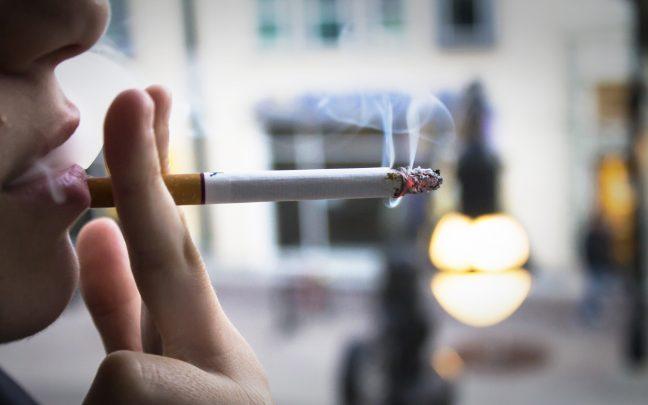The American Lung Association’s annual report card on tobacco use and control gave Wisconsin failing grades in four out of five categories. Wisconsin, however, did receive an A for its Smoke-Free Air Law.
It has been almost 10 years since Wisconsin’s smoke-free air laws took effect, which banned smoking in all public places and workplaces. Since then, the state has taken few steps to tackle smoking, Director of Public Policy and Communications for ALA in Wisconsin Dona Wininsky said.
“As other states are doing more, Wisconsin is doing nothing, and that doesn’t reflect well in our grades,” Wininsky said.
In other states, such legislation has taken the form of increased taxes, incorporating vapes and e-cigarettes into smoke-free air laws and raising the minimum age to purchase tobacco, according to Winisky.
Program Coordinator for the Tobacco-Free Columbia-Dane County Coalition Ryan Sheahan said that adding e-cigarettes to smoke-free air laws would help change social norms around the use of e-cigarettes, especially among youth and young adults.
Among other failing categories, Wisconsin received an F for not having a state law prohibiting tobacco sales to those under 21. While the federal smoking age is 21, state law puts it at 18, creating confusion for retailers, Wininsky said.
“Local law enforcement is still only enforcing the 18 age,” Winisky said. “The law is there, it’s illegal for them to sell, but local law enforcement can not enforce the 21.”
According to a Department of Health fact sheet, close to 90% of adult smokers had their first cigarette by age 18. Delaying the onset of smoking significantly reduces the likelihood of future addiction, Winisky said.
In August, Sen. Howard Marklein, R-Spring Green, introduced a bill with a broad coalition of bipartisan support that would raise the smoking age to 21. While the bill has received a hearing in the assembly, it has yet to receive one in the senate and no further action has been taken, leaving it’s future uncertain, Wininsky said.
“[These bills] get introduced, they get assigned to committee and nothing happens,” Winisky said. “It’s an issue of political will.”
Over 100 vape related hospitalizations spark WI legislator discussion
In a Jan. 10 press release, Marklein wrote because of the new federal law setting the smoking age to 21, his bill was no longer necessary. Although the law has taken effect, the FDA is still working to implement a framework for enforcement.
The state also received two Fs for its lack of funding for tobacco prevention programs and for the limited access Wisconsin smokers have to cession services. According to the report card, the state’s 2020 budget allocates $8 million for smoking prevention programs — far below the $57 million the CDC recommends for Wisconsin.
The last failing grade on the report card was the D Wisconsin received for the state of its tobacco taxes. While Wisconsin’s tax on a pack of cigarettes is $2.52, this does not include e-cigarette products, Winisky said.
E-cigarettes are currently taxed at 5 cents per milliliter of fluid. But according to the Juul website, a Juul pod contains roughly the same amount of nicotine as a pack of cigarettes in just 0.7 mL of fluid, which is only taxed at 3.5 cents.
However, the local government is restricted in how it can regulate nicotine products because of a legal situation called preemption, according to Sheahan.
“Locals don’t have control over any tobacco policy that has to do with the point of sale at a store,” Sheahan said.
But, that does not mean that the local government has no power to tackle tobacco use. Madison is among the communities in Wisconsin that have added e-cigarettes to smoke-free air laws, Sheahan said.
State and federal governmental approach to vaping crisis needs altering
At the University of Wisconsin, student organizations like SPARK work to implement a tobacco-free policy on campus, the organization’s president, Adeline Sii said. A recent campus survey of students, faculty and staff found eight of 10 are in favor of such a policy.
“My dad struggled with tobacco addiction as a kid, so that really drives me to educate my peers before they actually try the product,” Sii said.
SPARK also runs outreach events that seek to educate the student body on tobacco-related issues. On Halloween, the group handed out candy and pamphlets with statistics on tobacco prevention and e-cigarette use.
Though cigarette use among youth has declined, e-cigarette use has increased sharply. Winisky said that has created a whole new problem.
“There’s a sentiment that the tobacco problem has gone away because smoking rates for traditional cigarettes have gone down so dramatically,” Winisky said. “But now we’re talking about a whole new generation of addiction to vaping products.”


















